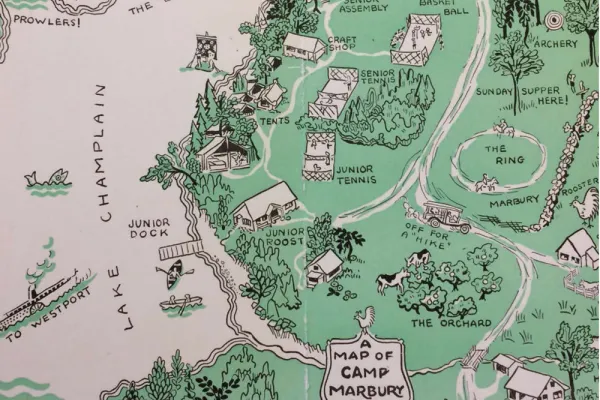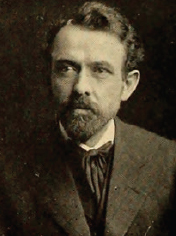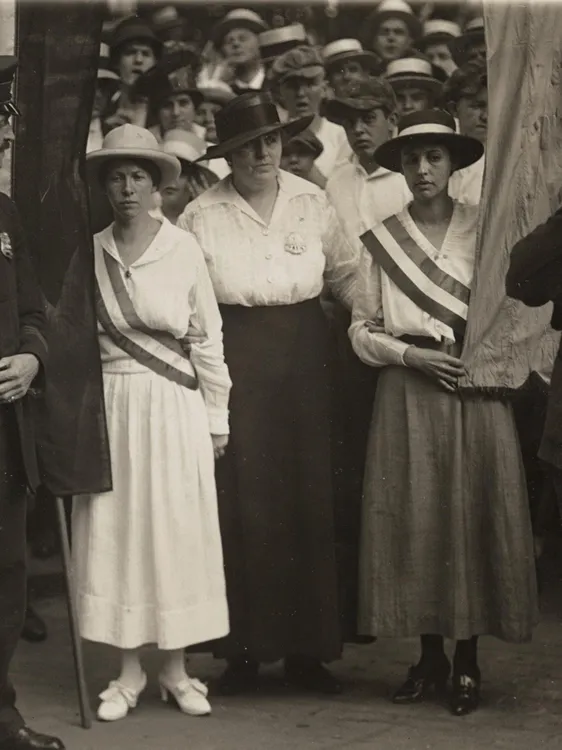Girl Power
Campus Life

Published September 25, 2020
Fostering women’s leadership—and finding pioneering ways to do it—is in the DNA at Smith. Right around the time American women won the right to vote, Smith music professor Henry Dike Sleeper and his suffragist wife, Mary Peet Sleeper, were looking for a way to help girls develop confidence and independence, characteristics that might eventually lead them to a college like Smith.
 They found their opportunity in the growing summer camp movement that had offered opportunities for boys since the 1870s. In 1921, the Sleepers founded Camp Marbury, a girls-only summer camp on the shores of Lake Champlain in Vermont.
They found their opportunity in the growing summer camp movement that had offered opportunities for boys since the 1870s. In 1921, the Sleepers founded Camp Marbury, a girls-only summer camp on the shores of Lake Champlain in Vermont.
It was a period of new optimism for women, and girls camps were just starting up. Camp Marbury, for girls ages 8 to 16, celebrated girl power right from the start. Advertisements placed in the alumnae quarterlies of Smith and Wellesley promised activities that promoted confidence, leadership and the “emancipation” of young women.
The camp’s namesake was Anne Marbury Hutchinson, an early American feminist who had defied Puritan authority. In a script for the camp’s 10th anniversary pageant, Henry Sleeper wrote that Hutchinson was “admired because of her ability and energy, her kindness to children, her interest in the welfare of women, her loyalty to truth as she saw it and her fearlessness in the presence of danger.”
Most campers came from families who could afford the two-month season, but scholarships were also available. Camp Marbury offered traditional outdoor activities, but it was known for dramatics, music, dancing, sketching and other artistic pursuits.
With Henry Sleeper at the helm, music was always in the air: Campers and counselors gathered in the assembly building for spirited plays and concerts, many of them written and composed by Sleeper. The assembly building was the heart of the camp, with a dance floor, a stage, dressing rooms, a store and a post office.
For decades, Camp Marbury, founded by a Smith music professor and his suffragist wife, was a haven for budding feminists.
Back at Smith, Sleeper taught music from 1898 to 1924 and was chair of the department for many years. Harvard-educated, he composed and arranged music for choir, organ and orchestra, including Smith’s “Oh! Fairest Alma Mater,” which was first performed in 1908 by the Glee Club at Northampton’s Academy of Music. Students and colleagues loved him. At milestone celebrations, he was known for humorous sendups on piano or organ that captured the personality of the honoree. He taught a voice class, promising that even “tone-deaf” students could learn to sing by making it fun. When he retired in 1924, Sleeper was honored by the class of 1908 with a professorship in his name, and the Alumnae Association of Smith College made him an honorary member in 1931.
His wife, Mary, a longtime member of the National Woman’s Party, spoke and led suffrage efforts across Massachusetts. She was president of the Northampton Equal Suffrage League when the league invited Anna Howard Shaw, president of the National American Woman Suffrage Association, to speak in John M. Greene Hall at Smith in 1915.
The Sleepers’ three grown children—including two Smithie daughters—assisted their parents in running Camp Marbury. Mary Olive Sleeper 1918 was a teacher and administrator at schools and colleges around the country and from 1948 to 1953 was head of Cushing House. Harriet Sleeper 1923 sang in the Glee Club at Smith and went on to become a school principal.
Rationing in World War II and their own advancing years forced the Sleepers to close Camp Marbury in 1942. But its role in the history of the children’s camping movement, and the empowerment of girls, has not been forgotten. Camp Marbury was recently listed in the National Register of Historic Places.
Sally Parker is a freelance writer who specializes in business, history, environment and higher education.
This essay appears in the Fall 2020 issue of the Smith Alumnae Quarterly.

100 Years of Suffrage: A century after the ratification of the 19th Amendment, the struggle for equal representation continues.
Powered by Women’s Votes: Reflections on a century of progress and reform, but also betrayals and roadblocks.
Because They Persisted: Long struggle for women’s suffrage documented in interactive web app.
‘She Was My North Star’: Great-granddaughter celebrates a pioneering champion for the rights of women and children.
Map of Camp Marbury from a camp brochure.